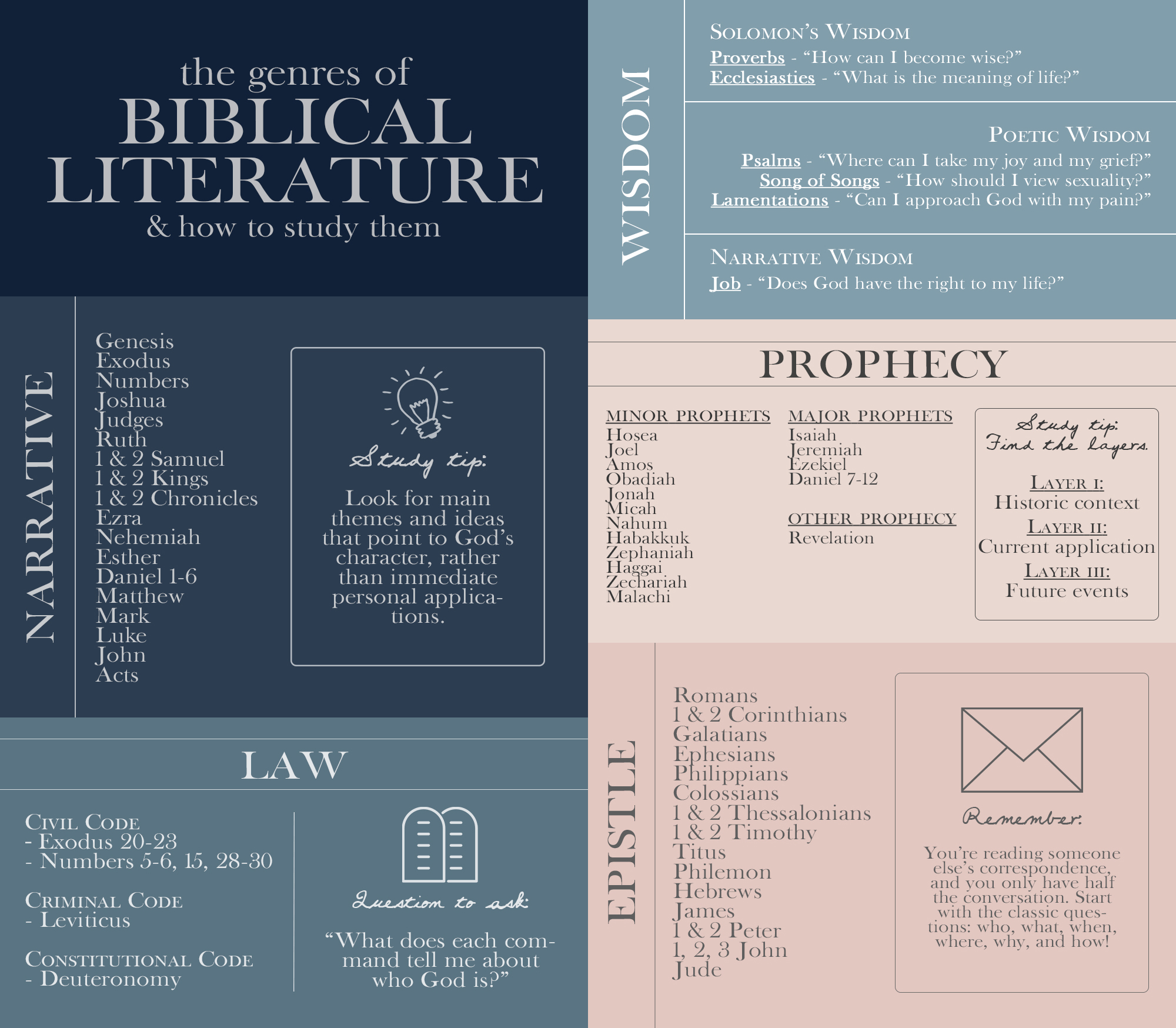three ways you might be reading your Bible wrong
/Confession: I used to flip my Bible open aimlessly, let my eyes fall at random, and then think that God must have ordained for some reason that I read that verse - that it had to have special and immediate meaning for me at that moment. His eye is on the sparrow, right? So of course His hand must be somehow guiding my random Bible-opening technique.
Yeah, no. I want to channel my inner Han Solo and tell my past self, "That's not how the Force works!"
This is an extreme example, but the fact is, it's easy for us to read the Bible wrong. It's easy to develop bad habits and mindsets about what it should or shouldn't say, how I can and can't interpret it, who it is or isn't written to. This isn't your latest Nicholas Sparks novel - it's an ancient, sacred text. It's divinely inspired. It's our one and only infallible source of the Truth. Most of us don't have a ton of experience with or education on any of those things - but that doesn't mean we can't learn them, and learn what their implications are for how we handle the Word of God.
If you want to check in and see how you're doing (and hopefully improve where needed), here are three ways you might be reading your Bible wrong that can serve as a starting point:
1. You're reading it like a book.
Wait, what? The Bible is a book.
Kind of. But not in the way that we think of books.
The Bible is less a book and more a library. Just like any library, it contains a variety of volumes from different genres - some narrative, some poetry, etc. If you're reading every book of the Bible the same way, using the same study methods on law as you are on prophecy and parable, you're probably reading your Bible wrong. There are multiple types of literature within this one book, and each one should be approached a little differently.
(For a printable cheat sheet to all the different types of literature and tips on how to handle them, click here!)
2. You're reading it like a rulebook or self-help book.
To balance out Point #1, though, we have to address the fact that the Bible is one cohesive unit with a cohesive goal. That goal isn't, however, to give you all the laws of righteousness, or all the guidelines to live a good life.
If you're reading the Bible as if every verse is a moral imperative that you must apply to your own life immediately, or as if every passage contains a promise for you to cling to unwaveringly, you're probably reading your Bible wrong. It's not an exhaustive list of commands or a book of magic spells. It's actually a story - a story that reveals, in the most beautiful of ways, the identity of its Author, and then allows that identity to transform your life.
3. You're reading it like it was written to you.
I took this mistake to the extreme in my days of cherry-picking-at-random. I thought that the whole Bible was written to me, somehow - that there must be a way to twist every single verse and make it about me.
But in fact, each different book in the Bible was written to a specific audience in a specific time and for a specific purpose. Some books were written to the Jewish people as a record of their history and the great works of God among them. Some were written to specific nations as warnings of judgment. Some were written to new church communities in regions where the Gospel had been spread.
None were written to you or to me. None were written to or from a 21st-century Western thinker. So if you're reading them as if they were, you're reading wrong.
There are unique challenges to reading the Bible as a postmodern American when its background is ancient and Middle Eastern. There are things we miss because of it. But we can remember that what wasn't written TO us was written FOR us - for the timeless benefit of God's servants, even when the original players are long dead.
Want to learn how to read your Bible right?
Yes, my personal Bible study time used to be made up largely of the Super Spiritual Random Cherrypicking technique - but it isn't anymore. I learned not only how to read my Bible right, but how to go deep, how to study it for myself. I learned how to identify the timeless truths that are for me even today, even millennia after the original audience passed away.
If you’d like to learn how to do the same, Bedrock: A Foundation for Independent Biblical Study is for you! This highly practical and interactive textbook includes my comprehensive study methods for each type of Biblical literature, plus help with remedying all three of these common Bible-reading mistakes! If you’d like a copy, click here!








